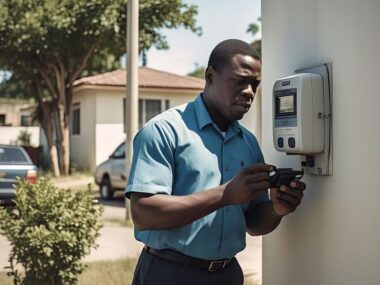Hey there! If you’re curious about “how much is genotype testing in Nigeria?”, you’re in the right place—especially since it’s a big deal for staying on top of your health here. With sickle cell anemia being a serious issue in Nigeria, getting tested helps you figure out your genetic makeup and make smart choices about marriage, kids, or just your well-being. Let’s break down the costs, what affects them, and where you can get tested as of March 25, 2025!
What’s Genotype Testing All About?
Before we get into the money stuff, let’s chat about what genotype testing actually is. It’s a simple test that checks your hemoglobin type—like AA, AS, SS, or AC—to spot things like sickle cell disease. Knowing this is huge, especially if you’re thinking about starting a family, since it shows the odds of passing on genetic conditions. Pretty cool, right?
How Much Does Genotype Testing Cost in Nigeria?
Price Range Breakdown
Genotype testing in Nigeria isn’t one-size-fits-all—it ranges from ₦1,500 to ₦10,000, depending on where you go and what you need. Here’s the scoop:
- Basic Test: Just want your AA, AS, or SS status? These quick tests run ₦1,500 to ₦3,000 at most hospitals or labs.
- Comprehensive Test: For a deeper dive into your genes, expect ₦5,000 to ₦10,000—great if you want more than the basics.
- Pregnancy Screening: Pregnant? Specialized tests combining genotype with other checks can hit ₦5,000 to ₦10,000.
Public spots like government clinics often keep it cheap, while private labs charge more for fancier gear and faster service. [Read also: How Much is Hormonal Profile Tests in Nigeria?]
Costs by Location
Where you are matters! Big cities charge more, but rural spots keep it low:
- Lagos: Think ₦2,500 to ₦5,000 for basics—tons of options here!
- Abuja: Similar vibes, ₦2,000 to ₦6,000, mixing public and private.
- Rural Areas: As low as ₦1,500, though the tech might not be as slick.
Check out The Guardian Nigeria for more on healthcare trends across regions!
What Affects the Price?
A few things can nudge the cost up or down:
- Test Type: Basic is cheap; detailed screening costs more.
- Facility: Private labs like Synlab Nigeria charge extra for top-notch service.
- Speed: Need results fast? That’ll bump it up a bit.
- Location: City labs with high demand and better tools aren’t as budget-friendly.
Where Can You Get Tested?
Public Hospitals
For wallet-friendly options, hit up public spots like National Hospital Abuja or Lagos University Teaching Hospital (LUTH). They’re subsidized, so you’re looking at lower costs—perfect if you’re on a budget. [Read also: How Much is a CT Scan in Nigeria? 2025 Prices & What to Know]
Private Labs
Want quick results and a comfy vibe? Private places like Lily Hospitals or Pathcare Laboratories have you covered. They’re pricier but deliver quality and speed.
Online Testing
Telemedicine’s on the rise! Order a kit online, send in a sample, and get results digitally. It’s handy but costs ₦5,000 to ₦10,000 due to shipping and processing.
Why It’s a Big Deal in Nigeria
Sickle cell’s no joke here—with AS and SS common, testing helps you plan ahead. If both parents are AS, there’s a 25% chance their kid gets SS. Knowing your genotype lets you dodge that risk and make informed calls, like getting counseling or prenatal checks.
Spreading the Word
Awareness is key—lots of folks, especially in rural areas, don’t realize how vital this is. More education could cut sickle cell rates big time!
Wrapping Up
Genotype testing in Nigeria runs ₦1,500 to ₦10,000, depending on the test, spot, and location. Whether you go public for a steal or private for extras, it’s a small price for peace of mind—especially with sickle cell so common. Knowing your genotype is the first step to a healthier you and your future fam!



